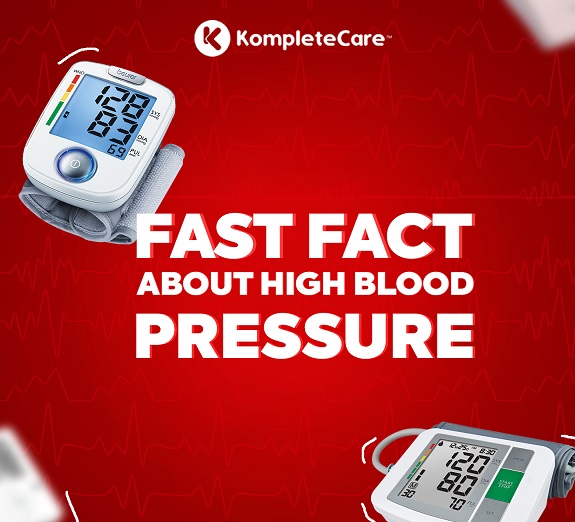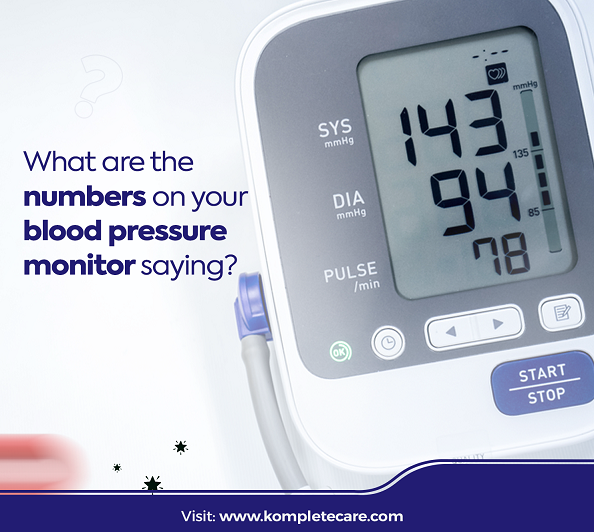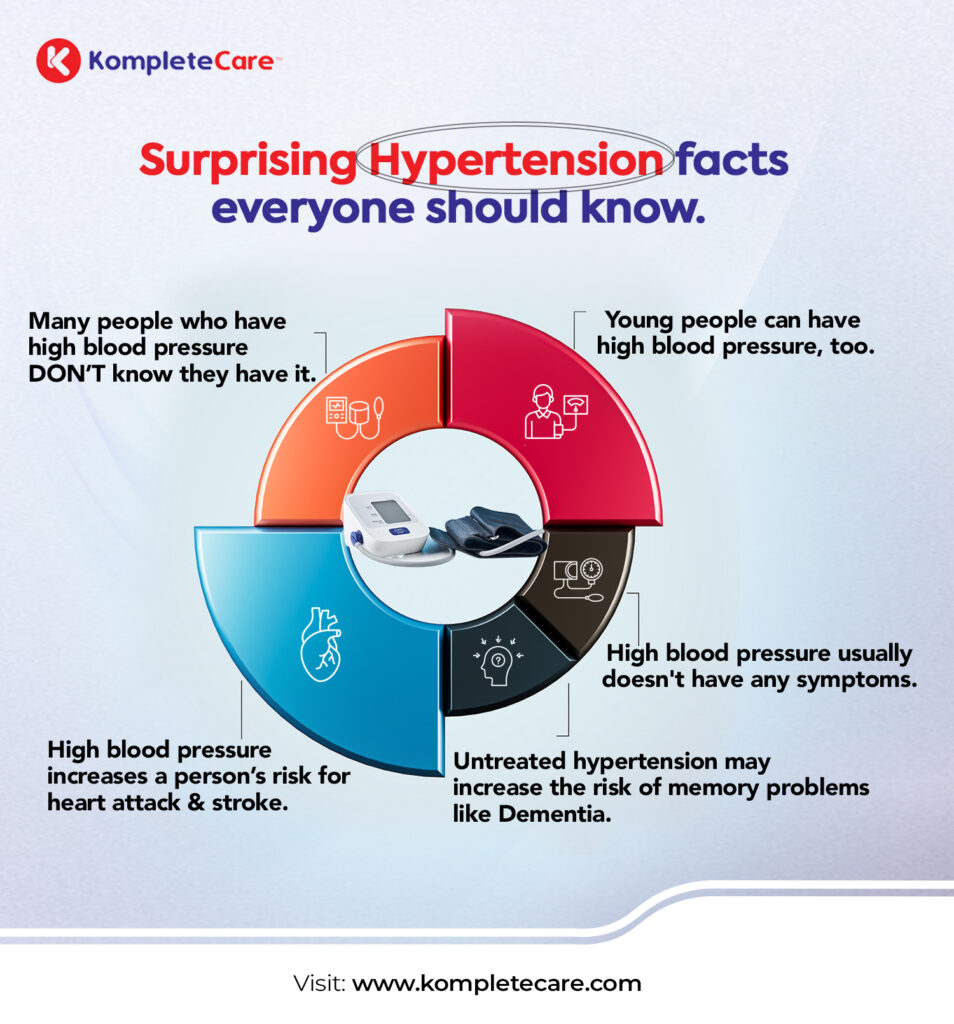
![]() Chioma OkwarahealthcareOctober 25, 2023
Chioma OkwarahealthcareOctober 25, 2023
Millions of Nigerians suffer from high blood pressure, or hypertension, which is a health condition that requires medical treatment. Although it rarely shows any symptoms in some people, if left unchecked and untreated, it can cause serious health issues.
High blood pressure, also known as hypertension, is not new to Nigerians. Many know about it but are misinformed because, unlike other health issues, most cases of high blood pressure do not show signs and symptoms.
The silent killer as it is called by the United States Food and Drug Administration (FDA), has claimed the lives of so many unannounced. It is normal for the body’s blood pressure to rise and fall during the day as it should because we engage in activities that require movement.
The problem starts when it rises and refuses to come down. The good news is that high blood pressure can be managed with medications and lifestyle changes, but you need to always check or monitor it to be on the safe side.
The number of Nigerians diagnosed with high blood pressure has increased over the years. A meta-analysis review by the World Health Organization( WHO) carried out in 2018 in Nigeria stated that 31.2% of adults in Nigeria are hypertensive. With women leading with 31.1% and men at 29.5%.
If broken down to a layman’s understanding, it means that over 60 million Nigerians were diagnosed with high blood pressure in the last five years. In this article, we will discuss all you need to know about high blood pressure in Nigeria, its causes, symptoms, and effective ways to manage it. So read to the end.

An average Nigerian, when asked this question, will simply answer that high blood pressure is when older adults experience chest pain (angina) or a heart attack. While this is not the correct answer, it is related to high blood pressure. Chest pain, aneurysm, dementia, heart attack, stroke, kidney failure etc. are health problems you can develop from having a constant high blood pressure of 180/120 mmHg and above.
To go further, a definition of blood pressure will help us understand what it is all about when it is high.
Our arteries carry blood away from the heart. They are also made up of muscles, and as the heart pumps blood into the arteries, it comes with a force that hits the wall as the blood is flowing. So, blood pressure is simply the pressure blood puts on the walls of the artery as it is flowing. This pressure on the walls of the artery can weaken or burst if the pressure is too high.
High blood pressure is simply blood pressure that is very high. Sometimes it is so high that the body goes into crisis.
There are two types of hypertension: the primary or essential hypertension and secondary hypertension (which could result from kidney disease or a tumor). However, 95% of hypertension is called primary or essential, which means unknown cause. That can be related to a lifestyle like smoking or an excess intake of alcohol. Studies have shown that essential hypertension is primarily caused by having too much insulin, which is called hyperinsulinemia.
To read the blood pressure, two numbers are needed: the systolic blood pressure and the diastolic blood pressure. The Systolic blood pressure records the pressure in the arteries when the heart beats. It is written as the first number, or numerator. Diastolic blood pressure records the pressure in the arteries when the heart rests between beats. It is written as the second number, or denominator. Both are measured in millimetres of mercury (mmHg).
A blood pressure of less than 90/60 is called Low blood pressure. Normal blood pressure is less than or equal to 120/80 mmHg for adults. High blood pressure is diagnosed if, on two different occasions, your blood pressure is 140/90 mmHg or higher. High blood pressure of 180/120 mmHg and above is considered hypertensive crisis and requires urgent medical attention to save the patient.

High blood pressure in Nigerian is something that develops over time as a result of so many factors. Some of them include:

When you keep having too much insulin, you will develop insulin resistance, causing the pancreas to make more insulin, and having more insulin will then cause the receptors to downgrade and cause insulin resistance. High insulin stimulates the sympathetic nervous system, which has the effect of raising the blood pressure.
High insulin causes your arteries to harden and causes high blood pressure. Conduct a test called HOMA-IR to know if you have insulin resistance or high insulin levels while you are fasting. Insulin resistance is what happens in your body over time and could lead to pre-diabetes and then type 2 diabetes. Insulin resistance is the cause of metabolic syndrome, where you have high blood pressure, high glucose, and high cholesterol and belly fat.
There are other things that can cause high blood pressure, like low potassium, low vitamin D, low magnesium, and low vitamin k2. If you have high insulin or insulin resistance, you will end up with low potassium because you need normal-functioning insulin in order to absorb potassium. You need 4,700g of potassium daily; you can get it from your vegetables or from a supplement. Increase your potassium; potassium will help you lower your hypertension. Potassium is found in leafy greens like cabbage and spinach, and you need about 7 to 10 cups of vegetables per day.
Low vitamin D levels: vitamin D has a very powerful effect on blood pressure. The vast majority of people are vitamin D deficient. There is a study that shows that when you take vitamin D, your blood pressure comes down. If you have hypertension, take at least 20,000 IUs to help you lower your blood pressure.
Low magnesium: magnesium is an electrolyte that works with potassium. You also need vitamin D to help you absorb magnesium. You can get magnesium from the same food or vegetables you get potassium from. Magnesium is a good relaxer of blood vessels; if you do not have enough magnesium, your blood vessels will become stiff and your blood pressure will go up.
Low vitamin K2: you need vitamin K2 with vitamin D3, they work together. Vitamin K2 helps keep calcium out of your arteries. If you are deficient in vitamin K2, you could potentially buildup calcium in your arteries, and that can make things very stiff. Vitamin K2 can be gotten from fatty foods, so if you are on a low fat diet, you will be deficient in vitamin K2.
If you are on statin drugs that block cholesterol, just know that they can inhibit vitamin K2 and vitamin D3. Statin drugs also increase your risk of developing insulin resistance. To decrease hyperinsulinemia, you will have to go on a healthy keto diet and intermittent fasting. It will help support your healthy lifestyle and help support insulin levels because it is a low-carbs diet.
This information is not meant to replace your medical care. Do not stop taking medication unless you check with your doctor first.
High blood pressure puts you at risk for stroke, and zinc deficiency can cause hypertension. Everyone is focused on lowering sodium; however, a lot of people lower their sodium intake and are still on hypertension drugs, and they still have hypertension.
If you are deficient in zinc, your sense of smell decreases as well as your ability to taste. This process will encourage one to reach out for more salt and flavour from food. When you consume too much sodium without the balance of potassium, and magnesium, there will be a rise in hormones like renin and angiotensin II. Salt increases blood pressure through these hormones because they constrict the blood vessels.
If you are deficient in folate, you will have hypertension.
ACE-2-inhibitor is a hypertension drug, and it also depletes zinc, causing more blood pressure problems. Drugs that deplete zinc are:
Zinc is a helper mineral for making nitric oxide. Nitric oxide is a dilator of blood vessels. Nitric oxide is good for individuals with hypertension sand zinc is needed for the optimal functioning of nitric oxide. Zinc is needed to make certain antioxidants, like SOD, that keep inflammation in check. Zinc helps in the production of leptin, a hormone that keeps you satisfied, so without sufficient zinc, you will tend to overeat. You can find zinc in red meat, shellfish, and oysters.
A blood Pressure of 130/85mmHg or higher, which is slightly elevated, may not show symptoms. But if it is 180/120mmHg and higher, your body will show symptoms. This is termed a Hypertensive crisis and requires urgent medical attention.
Some of the symptoms include:
These and many more are the symptoms of high blood pressure that should not be overlooked. Once you notice two or more of these signs, see your doctor to check your blood pressure and put you on the required medications to help.

Constant high blood pressure can damage or burst the arteries, thereby putting one at risk of developing heart problems, kidney failure, stroke, loss of vision, and even death.
Some complications that can result from uncontrolled high blood pressure include:
When treating or managing high blood pressure in Nigeria, several factors need to be considered. Some of these factors include the severity of the condition and the risk factors of developing cardiovascular diseases, stroke, or kidney failure among the patients. It is advisable to follow your doctor’s guideline for managing your high blood pressure in Nigeria.
For patients with blood pressure readings of less than 140/90 mmHg, lifestyle changes like a salt diet, exercise, quitting smoking and alcohol, etc. may be recommended by the doctor. For those with 180/120 mmHg and higher, medications and lifestyle changes will be recommended.
Two methods are used in treating or managing high blood pressure in Nigeria effectively.
Doctors use these medications to lower the blood pressure in patients
This plays a great role in lowering blood pressure naturally. Some lifestyle changes include:
Telemedicine brings medical services to you through chat, virtual video calls, or telephonically. Old age, family history, diabetes, obesity, pregnancy, stress, smoking, and alcohol are some of the risk factors known to cause or contribute to high blood pressure in Nigeria.
Millions of Nigerians suffer from high blood pressure, or hypertension, which is a health condition that requires medical treatment. Although it rarely shows any symptoms in some people, if left unchecked and untreated, it can cause serious health issues like heart disease, stroke, dementia, aneurysms, kidney failure, and death.
Consult a doctor using this link; you do not need to leave your office or home just to get medical advice concerning your health. For severe cases of high blood pressure (180/120 mmHg), urgent medical attention and medication may be required, but for the majority of people with slightly elevated high blood pressure, lifestyle changes and a healthy diet may be all that is required to lower the blood pressure.
1. What is the high blood pressure rate in Nigeria?
The total prevalence of hypertension from the random-effects meta-analysis is 28.9% (25.1, 32.8), with men having a prevalence of 29.5% and women having a prevalence of 25.0%. For urban and rural residents, respectively, there is a prevalence of 30.6% and 26.4%.
2. What are the hypertension medications in Nigeria?
Losartan, Lisinopril, Nifedipine, Furosemide, and Amlodipine were the top five medications taken in Nigeria, making up 74% of the top 10 medications.
3. What causes really high blood pressure?
Unhealthy lifestyle decisions, such as not engaging in enough regular physical activity, can lead to high blood pressure. Obesity and diabetes are also two medical problems that can raise the risk of high blood pressure. Pregnancy can also cause high blood pressure.
4. What is the first line treatment for hypertension in Africans?
Practice guidelines have long advised against using angiotensin converting enzyme inhibitors (ACEI) and/or angiotensin receptor blockers (ARB) as the first line of treatment for black patients with high blood pressure who do not have any comorbidity. Instead, the use of thiazide diuretics or calcium channel blockers (CCBs) is advised.
5. Why do we have a high rate of high blood pressure in Nigeria?
Experts claim that factors such as population expansion, a shift toward urban living, and dietary and lifestyle modifications have all contributed to this sharp rise in high blood pressure in Nigeria. People with hypertension run the risk of stroke, renal disease, and heart disease.
6. What happens if BP is 140 and 100?
If your blood pressure is between 130 and 139 mmHg/80 and 89 mmHg, it is classified as high (stage 1). 140/90 or greater is considered stage 2 high blood pressure. Seek medical attention as soon as possible if your blood pressure readings are 180/120 or above on many occasions. This high reading is regarded as a hypertensive crisis.
7. What is a critically high BP?
Any blood pressure reading greater than 180/120 mm Hg is regarded as a hypertensive crisis or emergency. In the event that someone has these blood pressure values, get emergency medical attention. High blood pressure raises the risk of heart attack, stroke, and other major health issues if left untreated.
8. What are four worst blood pressure drugs?
Five of the worst drugs for high blood pressure
Beta-blockers: Beta-blockers are typically not the first-choice treatments for lowering blood pressure.
Loop diuretics: One kind of diuretic (water pill) called a loop diuretic is furosemide (Lasix).
Among them are alpha blockers, vasodilators, and alpha-2 agonists.
Dr Berg. E. (2021). Why does potassium work for hypertension? High potassium foods for high blood pressure.
Dr. Berg. E. (2018). Real cause of high blood pressure (Hypertension).
Dr. Berg. E. (2024). The most overlooked cause of hypertension (High blood pressure).
U.S Food and Drug Administration (2023) High Blood Pressure–Understanding the Silent Killer
John Hopkins Medicine ( 2023) Diabetes and High Blood Pressure
John Hopkins Medicine (2023) Hypertension: What you need to know as you age.
National Institute on Aging ( 2022) High blood pressure and older adults.
World Health Organization Nigeria ( 2022) Nigeria collaborates with WHO to curb hypertension, introduces control initiative.
Mayo Clinic (2022) Hypertensive crisis: What are the symptoms?
Centres for Disease Control and Prevention (2021) High blood pressure
healthcareNovember 7, 2024
MedicationNovember 25, 2024
NutritionFebruary 5, 2025
MedicationFebruary 5, 2025









Pingback: 10 Surprising Health Benefits Of Eating Shawarma